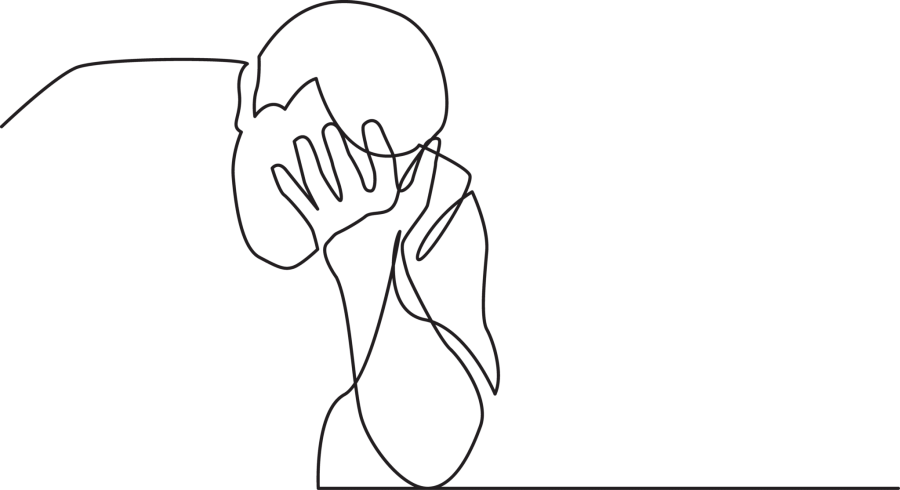“WE ALL HAVE STRESS!”
Mental Health Institute Berlin
Burnout
The term comes from English and means “to be burnt out”. A long-lasting burden and permanent stress without appropriate compensation can lead to mental, physical and emotional exhaustion. Lack of appreciation, feelings of powerlessness and thoughts of meaninglessness are central factors in its development. As a result, people suffering from burnout can no longer or hardly fulfill the demands placed on them. Burnout is often accompanied by a feeling of inner emptiness, tension, restlessness, anxiety and sleep problems. Self-esteem and joie de vivre can also suffer, and suicidal thoughts can be the result.
Those who suffer from burnout are usually unable to relax properly even at the weekend or on vacation; permanent fatigue and states of exhaustion are also common in everyday life. The result can be concentration difficulties, muscle tension and social withdrawal. Emotionally, burnout manifests itself in frustration or mild irritability. Long-term exposure to stress also increases the risk of secondary diseases such as increased blood pressure, tinnitus, chronic pain or abuse of alcohol or drugs.
In the corresponding diagnostic systems, “burnout” was not considered an illness for a long time, but rather a risk constellation for the disorders described above. Whether or not it makes sense to restrict the diagnosis to workplace-related stresses is a matter of controversial debate among experts.
OUR PROMISE
The Mental Health Institute (MHI) Berlin is a private clinic that offers modern and scientifically sound day-clinical and outpatient treatments to people with mental problems and suffering.
What is stress?
The most common cause of the feeling of being “stressed”, which is very well explained biologically, is psychosocial factors. A distinction can be made between “external” stressors (triggers), such as deadlines, pressure to perform at work, constant availability, conflicts at work or in the family, lack of exercise or too little time for relaxation, and “internal” stressors, such as perfectionism, high personal expectations and the desire to please everyone all the time.
Whether certain situations or environmental stimuli trigger a stress reaction in us depends on individual previous experiences. It plays a decisive role whether stress is perceived as positively stimulating eustress or negatively destructive disstress. The duration of the stress also has an impact on the disease value.

effects of stress hormones
The stress reaction is first of all a sensible reaction of our body to an environmental stimulus, which can be explained by evolutionary biology. Our ancestors were forced to be able to react at lightning speed in a dangerous situation in order to ensure their survival. In order to be able to fight or escape a threat, such as a dangerous animal, it is vital that our body can provide energy very quickly. To do this, stress hormones (such as cortisol) are released, putting the body on alert. These cause the pulse and blood pressure to rise for better circulation, the bronchial tubes to dilate for better breathing, the muscles to tense, and the pupils to dilate for sharper vision. Less vital processes, such as digestive processes, are halted in favor of increased respiratory rate and lowered body temperature. This same physical stress response occurs even though we are rarely threatened by actual danger in our daily lives, and can even persist if stress persists. Chronic stress then causes the stress hormones to be reduced only slowly or not at all. On the emotional level, stress often generates negative feelings such as inner pressure or fear of failure, as well as increased irritability or impatience.
Even positive events (e.g., an important graduation, a wedding, or the birth of a child) can generate stress and release adrenaline, for example. Our body’s stress response also ensures that our senses are sharpened, we can concentrate better and we perform better in certain situations (such as exams). Stress per se is therefore not unhealthy and a “medium level of tension” is even beneficial, since a too low stress level can even result in “boreout” (for being underchallenged, bored).
Stress-associated diseases
Chronic stress can have a negative impact on our health. If the stress reaction persists, our body can no longer find its way out of the state of alarm, as the stress hormones suppress our perception of pain and increase the immune defense in the short term. However, this effect only occurs for a short time. If the stress continues, the immune defense is weakened and the risk of catching a cold increases. Prolonged muscle tension can lead to neck and back pain, and digestive problems can also occur. Permanent high blood pressure can occur, and calcification of the coronary arteries and an increased risk of having a heart attack can result. Other symptoms of permanent exposure to stress include irritability, sleep disturbances, sexual aversion and headaches, such as migraines. Ultimately, physical and mental performance can decline if the body’s energy reserves are permanently strained and we are unable to regenerate. People affected by permanent stress often complain of a reduced ability to concentrate and notice an increased susceptibility to errors. There is a risk of persistent exhaustion and, as a consequence, the development of burn-out or depression. The risk of other mental illnesses such as panic attacks also increases, as does the risk of increased substance use, such as alcohol or drugs to boost performance.
A MODERN TREATMENT CONCEPT.
INIDIVIDUALLY TAILORED TO YOU.
Treatment of and dealing with burnout
Learning mindfulness and relaxation techniques can prove helpful in dealing with burnout. Sometimes, however, this is not enough, due to the prolonged stress and severity of the symptomatology. In this case, it is recommended to start cognitive behavioral therapy or schema therapy, which helps sufferers to recognize, question and change certain behaviors or thought patterns, such as perfectionistic demands on themselves or others, in the long term.
Treatment of stress-associated disorders
One focus of cognitive behavioral therapy is on improving stress management skills. To do this, those affected first learn to analyze their individual stress experience. Together with you, our therapists want to find out which individual stressors affect you and how exactly, and how these can be changed to achieve an improved way of dealing with stress.
In addition, we offer stress management training in groups at MHI with the aim of promoting physical and mental health. Explanatory models for the development of stress and relaxation exercises are taught, and individual strategies for dealing with everyday stress are developed. The aim is to recognize triggers and signs of an increased stress reaction, and to look in a resource-oriented way at what might be helpful in coping.
Another important aspect is to question and change personal and stress-inducing thought patterns, such as a perfectionist attitude of entitlement. Additional important building blocks in a multimodal treatment concept are our sports and mindfulness groups, as well as yoga and relaxation offerings, in order to find a balance from everyday stresses and to learn how to deal with stress effectively in the long term.
The most common stress-associated disorders depression and anxiety disorders are treated on the corresponding pages to read.
Information about patient admission at MHI Berlin
The MHI Berlin offers its services to patients of all private health insurances, as well as to those paying for their own treatment. Immediate admission to the day clinic is usually possible.
The beginning of our common path
For the fastest possible initial contact, please contact us by phone or use our contact form.
After you have contacted us, the MHI Berlin team will contact you to arrange an appointment for an initial interview as soon as possible. The initial interview forms the basis of the admission.
If no acute admission is required, MHI Berlin submits the application for cost coverage to the cost units in advance.
In acute cases, the MHI Berlin contacts the cost bearers directly after admission regarding the cost clarification.
In any case, the clinic assists you in all bureaucratic processes and thus simplifies and accelerates your admission to the clinic.

